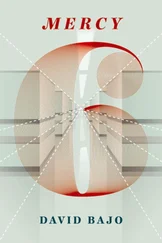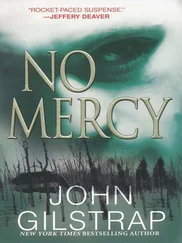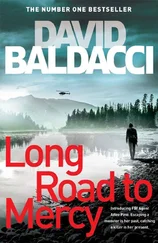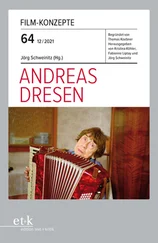Andrea Dworkin - Mercy
Здесь есть возможность читать онлайн «Andrea Dworkin - Mercy» весь текст электронной книги совершенно бесплатно (целиком полную версию без сокращений). В некоторых случаях можно слушать аудио, скачать через торрент в формате fb2 и присутствует краткое содержание. Жанр: Старинная литература, на английском языке. Описание произведения, (предисловие) а так же отзывы посетителей доступны на портале библиотеки ЛибКат.
- Название:Mercy
- Автор:
- Жанр:
- Год:неизвестен
- ISBN:нет данных
- Рейтинг книги:3 / 5. Голосов: 1
-
Избранное:Добавить в избранное
- Отзывы:
-
Ваша оценка:
- 60
- 1
- 2
- 3
- 4
- 5
Mercy: краткое содержание, описание и аннотация
Предлагаем к чтению аннотацию, описание, краткое содержание или предисловие (зависит от того, что написал сам автор книги «Mercy»). Если вы не нашли необходимую информацию о книге — напишите в комментариях, мы постараемся отыскать её.
Mercy — читать онлайн бесплатно полную книгу (весь текст) целиком
Ниже представлен текст книги, разбитый по страницам. Система сохранения места последней прочитанной страницы, позволяет с удобством читать онлайн бесплатно книгу «Mercy», без необходимости каждый раз заново искать на чём Вы остановились. Поставьте закладку, и сможете в любой момент перейти на страницу, на которой закончили чтение.
Интервал:
Закладка:
times, adults, Vincent had gray hair and a thick foreign accent,
Italian, and Charles had a hard, bronze face and an accent you
could barely hear from someplace far, far away, and they liked
fifteen-year-old girls; and they whispered deep, horsey,
choked words and had wet mouths; and you crunched down
in the seats and they kissed you all over, then with their hands
they took your head and forced it into their laps. One became a
famous m ovie star and I went to watch him in cow boy films.
He was the baddie but he was real nice to me. I said I wanted to
be a writer, a real writer, a great writer like Rimbaud or
D ostoevsky. He didn’t laugh. He said we were both artists and
it was hard. He said, Andrea, that’s a pretty name. He said
follow your dream, never give up, it takes a long time, years
even, and we slouched down in the seats. I knew the highw ay
to N ew Y o rk and the streets when I got there. I knew the back
alleys in Philadelphia too but I didn’t like Philadelphia. It was
fake, pretend folksingers and pretend guitar players and
pretend drug dealers, all attitude, some pot, nothing hard,
pretend poets, a different attitude, no poems. Y o u couldn’t get
lost in the dark, it w asn’t dense enough, it w asn’t desolate
enough, it was safe really, a playpen, the fake girls went there


to not get hurt, to have regular boyfriends, to pretend they
were different or bad; but I was really lost so I had to be lost,
not pretend, in a dark as hard and unyielding as the cement
under it. In N ew Y ork I got o ff the bus dank from old Charles,
old Vincent, he walked away, wet, rumpled, not •looking
back, and I had some dollars in my hand, and I took the A train
to Greenwich Village, and I went to the Eighth Street
Bookstore, the center o f the universe, the place where real
poets went, the most incredible place on earth, they made
beauty from the dark, the gray, the cement, your head down
in someone’s lap, the torn skin on your bruised knees, your
bloody hands; it wasn’t the raspy, choked, rough whisper, it
was real beautiful words with the perfect shape and sound and
filled with pain and rage and pure, perfect; and I looked
everywhere, at every book, at every poem, at every play, and I
touched every book o f poems, I just touched them, just passed
my hand over them, and I bought any poems I had money for,
sometimes it was just a few pages stapled together with print
on it, and I kept them with me and I could barely breathe, and I
knew names no one else knew, Charles Olsen, Robert
Duncan, Gregory Corso, Anselm Hollo, Leroi Jones,
Lawrence Ferlinghetti, Kenneth Patchen, Robert Creeley,
Kenneth Rexroth; and when Allen Ginsberg had new poems I
almost died, Allen Ginsberg who was the most perfect and the
bravest and the best and the words were perfect beauty and
perfect power and perfect pain and I carried them with me and
read them, stunned and truly trembling inside because they
went past all lies to something hidden inside; and I got back on
the bus and I got back to Camden and I had the poems and
someday it would be me. I wrote words out on paper and hid
them because my mother would say they were dirty words; all
the true words were dirty words. I wrote private, secret words
in funny-shaped lines. Y ou could take the dark— the thick,
mean, hard, sad dark— the gray cement, lonely as death, cold


as death, stone cold, the torn skin, you on your knees your
hands bleeding on the cold cement, and you could use words
to say I am — I am, I want, I know , I feel, I see. N in o ’s knife,
cold, on the edge o f m y skin down m y back, the cement
underneath: I want, I know, I feel; then he tears you apart from
behind, inside. Y ou could use words to say what it was and
how it felt, the dark banging into you, pressing up against you,
pinning you down, a suffocating mask over your face or a
granite mountain pressing you under it, you’re a fossil, delicate,
ancient, buried alive and perfectly preserved, some bones
between the mountain and the level ground, pressed flat on the
cement under the dark, the great, still, thick, heavy dark. Y ou
could sing pain soft or you could holler; you could use the
voices o f the dead i f you had to, the other skeletons pressed in
the cement. Y ou could write the words on the cement blind in
the dark, pushed on your knees, a finger dipped in blood; or
pushed flat, the dark on you, the cement under you, N in o ’s
knife touching the edge o f your skin. The poems said: Andrea,
me too, I’m on m y knees, afraid and alone, and I sing ; I’m
pushed flat, rammed, torn up, and I sing; I weep, I rage, I sing ; I
hurt, I’m sad, I sing ; I want, I’m lost, I sing. Y ou learned the
names o f things, the true names, short, abrupt, unkind, and
you learned to sing them, your heart soared from them, the
song o f them, the great, simple music o f them. The dark
stayed dark and hard but now it had a sound in it, a bittersweet
lyric, music carried on the edge o f a broken line. Then m y
m omma found the words I wrote and called me awful names,
foul names, in a screaming voice, in filthy hate, she screamed I
was dirty, she screamed she wanted me o ff the face o f the
earth, she screamed she’d lock me up. I left on the bus to N ew
Y ork . N o one’s locking me up. When the men said the names
they whispered and touched you; and flat on the cement, still
there were no locks, no walls. When the men said the names
they were all tangled in you and their skin was melting into


you the w ay night covers everything, they curved and curled.
There was the edge o f N in o’s knife on your skin, down your
back, with him in you and the cement under you, your skin
scraped away, burned o ff almost, the sweat on you turning as
cold as the edge o f his knife; try to breathe. She screamed
foul hate and spit obscene words and tore up all your things, all
your poems you had bought and the words you had written;
and she said she’d lock you up; no one locks me up. Men
whispered the same names she said and touched you all over,
they were on you, they covered you, they hid you, they were
the weight o f midnight on you, a hundred years o f midnight,
they held you down and kept you still and it was the only
stillness you had and you could hear a heartbeat; men
whispered names and touched you all over. Men wanted you
Читать дальшеИнтервал:
Закладка:
Похожие книги на «Mercy»
Представляем Вашему вниманию похожие книги на «Mercy» списком для выбора. Мы отобрали схожую по названию и смыслу литературу в надежде предоставить читателям больше вариантов отыскать новые, интересные, ещё непрочитанные произведения.
Обсуждение, отзывы о книге «Mercy» и просто собственные мнения читателей. Оставьте ваши комментарии, напишите, что Вы думаете о произведении, его смысле или главных героях. Укажите что конкретно понравилось, а что нет, и почему Вы так считаете.












